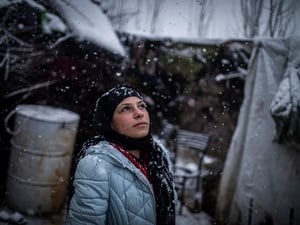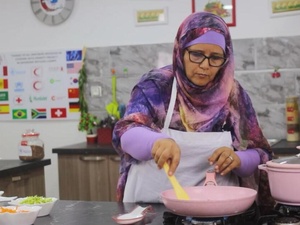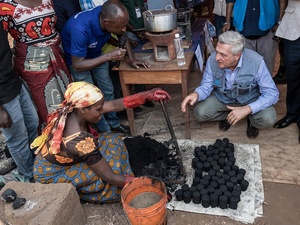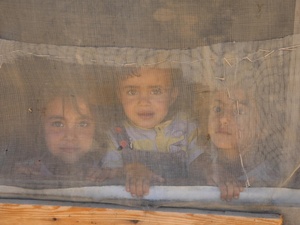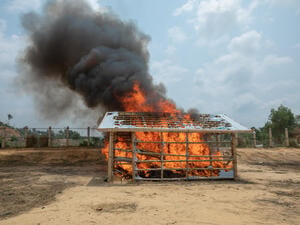UNHCR's Gillian Triggs warns COVID-19 severely testing refugee protection
UNHCR's Gillian Triggs warns COVID-19 severely testing refugee protection
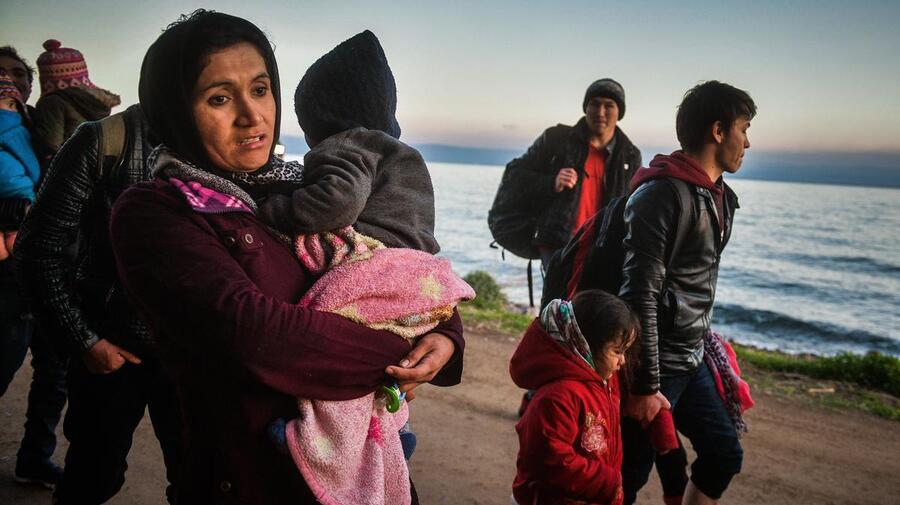
Refugees arrive on the Island of Lesvos, Greece, March 2 2020.
International standards of refugee protection have been severely tested in 2020 as a result of the COVID-19 pandemic, UNHCR, the UN Refugee Agency’s, international protection chief said today.
In a key annual address to UNHCR’s annual Executive Committee meeting in Geneva, Assistant High Commissioner for Protection, Gillian Triggs, said measures enacted by governments in response to the pandemic ranged from some of the most humane through to blanket denials of access to asylum and forced returns to danger.
“At the height of the pandemic, 168 countries fully or partially closed their borders with about 90 making no exception for people seeking asylum, seriously limiting access to international protection,” Triggs said.
Some also returned asylum seekers to their country of origin during this period, risking refoulement of many in need of protection, while others increasingly resorted to the disproportionate use of immigration detention.
“Particularly shocking has been the denial of disembarkation of boats carrying asylum seekers adrift in the Mediterranean and Andaman Sea – contrary of course to that maritime tradition of rescues of those at peril,” said Triggs.
Triggs also cautioned against efforts by some countries to “externalize” their asylum processes to third countries.
“Externalization can amount to warehousing asylum seekers indefinitely in isolated places, ‘out of sight and out of mind’, exposing them to danger and chain refoulement. The abdication of responsibility in this way presents a threat to the global asylum system and should be challenged.”
Other states, however, managed to ensure access to their territory despite the pandemic for refugees fleeing to safety.
“Today, 113 countries have shown that there are ways to resume their asylum systems,” said Triggs, adding that more than 100 countries have also been creative in enabling asylum claims by adopting remote technologies in the processing of claims.
“UNHCR has been clear: it is possible to protect against the pandemic and to ensure access to fair and speedy asylum processes. One does not exclude the other. While it is encouraging to see so many countries finding space for asylum seekers despite COVID-19, we urge that all states follow their lead and do so as well.”
In addition to health and protection challenges, the pandemic also threatened social and economic rights for those forcibly displaced, with many vulnerable to the “vagaries of the informal economy”.
“They have been among the first to feel the economic impact of lockdowns. Many have lost their jobs, been evicted from their homes and their children have been out of school for many months,” said Triggs.
Pressingly, refugees and those displaced have also been at heightened risk of gender-based violence during the pandemic, with some forced into survival sex or child marriages.
“Lockdowns and increased family tensions have led to spikes in gender-based violence across the world, with some UNHCR offices receiving 10 times the usual number of calls for protection.” In a timely response to the shocking global spikes of this phenomena, Triggs advised the Executive Committee that UNHCR will shortly issue its first ever policy on Gender-Based Violence.
UNHCR offices also reported increasing incidents of discrimination, stigmatization or xenophobia against refugees and displaced people, further exacerbating tensions with local communities. The levels of desperation among those displaced as a result of the pandemic also led to unpredictable pendular movements with some leaving and returning to their countries of origin.
While the pandemic tested global commitment to protecting the forcibly displaced, Triggs said that the response to COVID-19 highlighted the importance of the values of solidarity and inclusion, enshrined in the Global Compact on Refugees, in meeting these challenges.
“The virus does not distinguish between legal status or nationality. Access to health services cannot depend on citizenship or visa conditions,” Triggs said. “Another lesson learned over these last few months is that we know the pandemic will affect all of us. We can no longer exclude people on the basis of their legal status. The future must be one of inclusion and shared responsibility,” said Triggs.
“The Global Compact on Refugees has provided us with a vision and the strategies to meet these challenges.”
Agreed by 181 states in 2018, the Compact promotes the principle of solidarity sharing in the responsibility to protect refugees and those forcibly displaced. More than 1,400 pledges were made by states, civil society, NGOs, refugees, businesses and others at the Global Refugee Forum in December last year, to translate it into action.
With COVID-19 further impacting the already scarce number of refugee resettlement places, and with voluntary repatriation prospects limited, Triggs also urged more international support for social inclusion in refugee hosting countries, including in social services, education systems and employment markets.
For more information on this topic, please contact:
- In Geneva, Shabia Mantoo: [email protected], +41 79 337 7650


